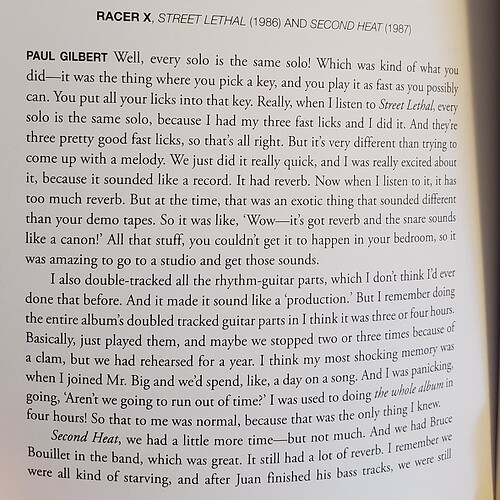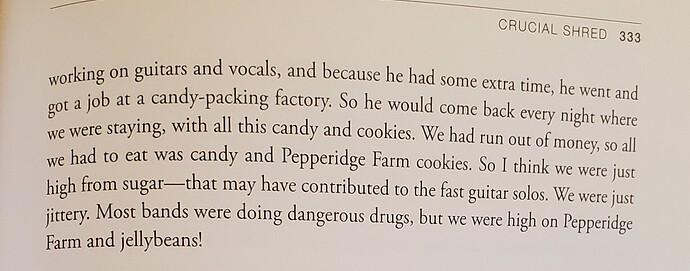This is the kind of stuff I try - not saying succeed, just try! - to write, and even then I think you need to be careful that when you get to that shreddy solo, even THAT can’t always be a wall of shred, but the speed should be used as an effect and an accent, and this will land better if its in the context of a good melody and there’s a feeling of melodic movement and tension and release going on in the solo.
But, I think this is why Joe Satriani is one of the few instrumental guitarists to ever crack the pop and rock top 40 - because he was a stupendous technical player, but did it all within the context of a damned good song.



















 that’s awesome. What were you doing for Favored Nations?
that’s awesome. What were you doing for Favored Nations?